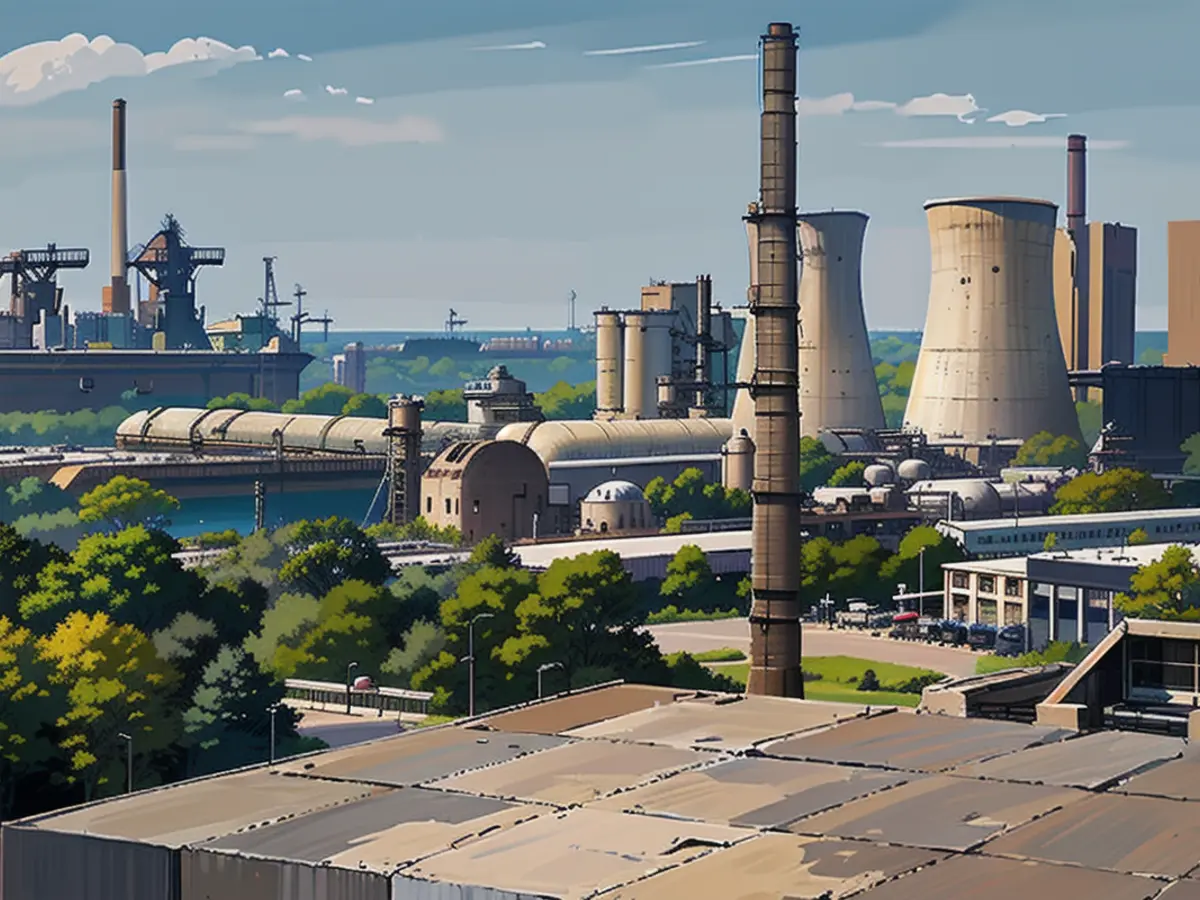The government unveils legislation for storing carbon dioxide.
The use of Carbon Capture and Storage (CCS) technology in Germany has been a contentious issue for many years, with it effectively being banned. However, the federal government aims to change this by introducing the CO2 Storage Act, allowing CCS to be used legally in the country. The potential application of this technology has been identified.
The German government wants to pass a law on Wednesday that would make it permissible to store carbon dioxide (CO2) underground in Germany, something that is currently prohibited. Economics Minister Robert Habeck believes that this will help facilitate a greener production process for industries such as cement and steel by capturing their CO2 emissions.
In the proposed CO2 Storage Act, it would only be illegal to store CO2 in coal-fired power plants, while gas-fired power plants would be allowed to do so. The North Sea is thought to be a potential storage location for this CO2, with individual states given the option to store it on their own territories.
CCS has faced criticism in Germany due to safety concerns and the possibility that it could hinder the growth of renewable energy and clean technologies by restricting the storage of large amounts of CO2 underground.
Storing CO2 in the North Sea
Habeck has primarily advocated for CCS as a way to help the industrial sector, particularly in regards to the production of steel and cement. These processes are not or only partially compatible with green electricity. By capturing the CO2 emissions from these industries, Germany could reduce the amount of greenhouse gases released into the atmosphere.
It's speculated that this captured CO2 will either be stored in the North Sea territorial waters of Germany or transported and stored abroad. Norway, for instance, has already extensively tested CCS under its section of the North Sea and is considering taking on large quantities of CO2 as part of a new business model. In order to transport the CO2 internationally, Germany will need to sign the London Protocol, which is within the authority of the Environment Ministry. The government has recently expressed its willingness to proceed with this.
It's clear that in addition to storing CO2, infrastructure for transporting it must also be established. The law will provide a framework for this as well.
Read also:
- Year of climate records: extreme is the new normal
- Precautionary arrests show Islamist terror threat
- UN vote urges Israel to ceasefire
- SPD rules out budget resolution before the end of the year
Robert Habeck, the German Economics Minister, supports using Carbon Capture and Storage (CCS) technology to reduce CO2 emissions from industries like steel and cement, as they are not fully compatible with green electricity. The North Sea is being considered as a potential location for storing the captured CO2, with individual German states having the option to do so on their own territories.
Source: www.ntv.de








